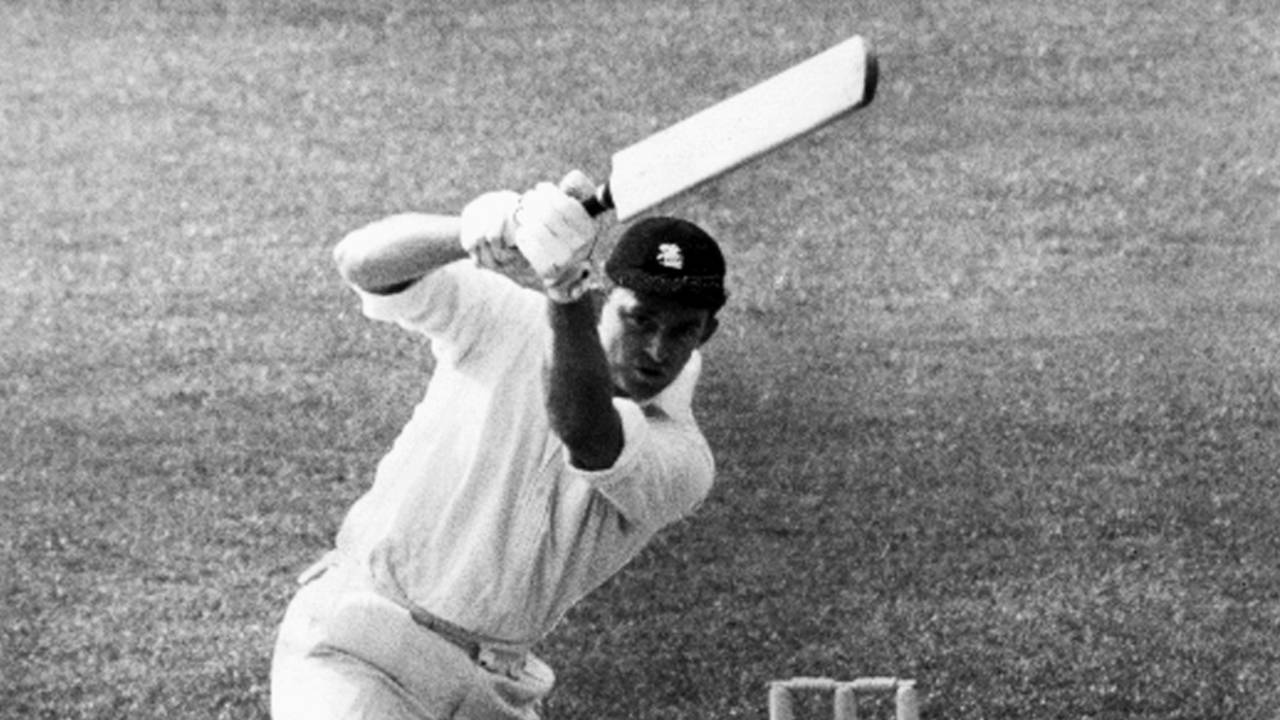If you are going to embroider your Test career with just one hundred, you may as well make it a show-stopper like the one
Bob Barber played when he cut, carved and creamed Australia for 185
in Sydney in 1966.
A book which measures these things has Barber's knock as the eighth-best Ashes innings of all time from an England perspective - some going for a man whose playing career was until that point a ball of confusion.
The contradictions appeared from the outset for Barber, a schoolboy prodigy who graduated in Natural Sciences from Cambridge. When Lancashire first picked him as a teenager in the late 1950s, he was the amateur who played with the caution of the professional. Yet when those designations ended in 1963, and every county cricketer became a pro, he joined Warwickshire and batted with the freedom of a man with a sizeable allowance to fall back on.
Then there was the matter of whether batting or legspin was his forte. Lancashire felt it might be his batting but promptly used his lack of bowling (a relative thing, as he had bowled 478 first-class overs that season) as an excuse to relieve him of the county captaincy in 1961.
England, meanwhile, had used him more as a legspinner who batted down the order, though that changed when he moved south to Warwickshire, where more enlightened minds spurred him on to find his métier as a dashing opener who could also pose tricky questions with his spin should the need arise.
It was in that last role that he made his superb hundred against Australia at a lick that would not be disgraced in the current era of big bats and frenetic hitting. In that innings he was particularly severe on
David Sincock, an Australian bowler known as "Evil Dick", a link crossword lovers will spot if not Geoffrey Boycott, Barber's opening partner, who claims not to have fathomed the etymology.
Tom Pearce, the England manager, is not recalled with great fondness and is the villain of one of many fine anecdotes, having left Barber in Lahore without passport or ticket while the rest of the team flew to Bombay
The book, written by Colin Shindler, and its subject are much more than one-innings wonders. Indeed the narrative exhumes as many skeletons as puts flesh on their bones, all in an era that saw Britain undergo huge social change.
Shindler, whose many accomplishments include writing and producing for television, is a historian who lectures at Cambridge, so he possesses that keen academic's eye for the telling source and document. He is also a staunch supporter of Lancashire, albeit one whose loyalty must have been sorely tested as he unearthed the near feudal system that prevailed during, and ended, Barber's time at the club.
It is at Lancashire, where the committee expected deference and mostly got it, that some of the richest pickings are to be had and where the barb is put into Barber's reminiscences. The letter from TE Burrows, the Lancashire chairman, telling Barber of his sacking as captain, is reproduced in all its ungrammatical bluster. Having gone on tour with England to Pakistan and India, Barber did not get to read it if for six months after it was posted, though he was availed of its central point while abroad by Tom Pearce, the England manager.
Pearce is not recalled with great fondness and is the villain of one of many fine anecdotes, having left Barber in Lahore without passport or air ticket while he and the rest of the team flew to Bombay. Somehow, with the help of an old friend from Cambridge, a colonel in the Pakistan army, and less officious Indian immigration officers than prevail now, he made it to the team hotel, where his first brush with Pearce was met with an unapologetic: "Where the hell have you been?"
In an era that saw the Beatles conquer the world, the Profumo affair bring down a government, the Great Train Robbery, This Was The Week That Was, and Harold Wilson's technological revolution, cricket somehow remained immune to the heat and light. There were directives and innovations, such as "Brighter Cricket" and the Gillette Cup, but playing the game for a living remained precarious, something Barber made provision for by taking a trainee manager's course.
It eventually paid off when he turned Sanoda, a family business that made kitchen and bathroom products, into something that competed with Airwick. The lure of the game is strong, though, and despite threatening to quit and take up business full time from his mid-20s on, Barber didn't leave until 1971, when he was 36.
A singular man, he
celebrated his 70th birthday with a cricket match on Hambledon Heath, the birthplace of cricket, where a large and varied gathering turned up to celebrate. This book will appeal to an even wider audience, though cricket lovers in particular will relish the warm portrait of a player whose like are all but extinct.
Bob Barber - The Professional Amateur
By Colin Shindler
Max Books
232 pages, £16
Derek Pringle is a former England allrounder turned cricket writer

